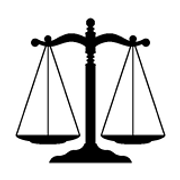
If you’re an Ohio resident with a criminal record, you may be able to have it expunged. Expungement is a legal process that “seals” the conviction, making it inaccessible to the public and allowing you to legally say you were never arrested or convicted of a crime. The records can still be accessed by law enforcement in the event of a new criminal investigation or if criminal charges are made against you in the future. While it’s best to consult a criminal law attorney to determine if you might benefit from expungement, here is some basic information about the process.
Who Is Eligible?
Some criminal convictions can never be expunged, including violent first- and second-degree felonies such as murder, rape, sexual battery, and aggravated assault. Additionally, most minor misdemeanors, including speeding and OVI offenses (operating a vehicle impaired), are not eligible for expungement under Ohio criminal law.
 But in most other cases, a person is eligible for expungement if the charges against them have been fully discharged. This means that any imposed jail or prison sentence has been served, any imposed parole or probation time has been completed, and all restitution charges, fines, and other court-ordered costs have been paid.
But in most other cases, a person is eligible for expungement if the charges against them have been fully discharged. This means that any imposed jail or prison sentence has been served, any imposed parole or probation time has been completed, and all restitution charges, fines, and other court-ordered costs have been paid.
In many cases, you can also have non-convictions expunged. For example, if charges against you were dismissed or a Grand Jury “no-billed” your case, which means there was not enough probable cause for the arrest, your attorney can apply to have those records sealed. To qualify, you must not have any pending criminal law charges against you.
What’s the Waiting Period?
You must wait one full year after discharge to apply for expungement for a misdemeanor. To apply for expungement of felony offenses, you must wait three years before applying to expunge one third-, fourth-, or fifth-degree charge; four years to expunge two fourth- or fifth-degree charges, and five years to expunge three fourth- or fifth-degree charges.
What Should I Expect at the Hearing?
If no objection to your application is filed by the prosecutor, a date will be set for a hearing. During the hearing, a judge will review the evidence presented by your attorney and the prosecuting attorney to decide whether to grant the expungement request. The judge will weigh your best interests against those of the government in rendering his decision. If the court orders in your favor, they will seal your record and notify all agencies with records of your conviction to do the same.
If you’re interested in having criminal charges expunged, contact David S. Washington Jr. in Hamilton, OH. With more than 20 years of criminal law experience, this seasoned attorney will guide you through each step of the process and fight hard to get your records sealed. Visit the website to learn more, or call (513) 751-1400 to speak with a criminal defense attorney.
About the Business
Have a question? Ask the experts!
Send your question

